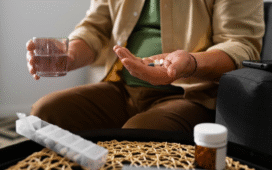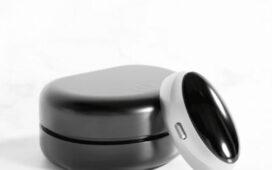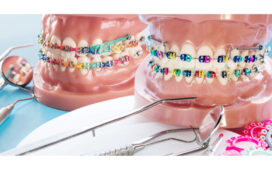When you become sick, it can be easy to neglect the seemingly “small things,” like combing your hair or brushing your teeth. However, mouth health is equally important even when you’ve come down with the flu, and managing it is imperative to overall health.
Now more than ever, the COVID-19 pandemic has changed the way the public approaches their health, this includes oral health. In 2020, CTV News reported that dentist visits should be delayed due to the COVID-19 pandemic. However, many clinics were able to re-open during the pandemic, such as this Bradford dentist in 2020.
Here are a few ways to manage your oral and physical health while dealing with personal illness.
Practice good personal hygiene
When you’re sick, you’re taught to cover your mouth and nose when you cough and sneeze. However, you need to keep up with dental and toothbrush hygiene as well.
According to Insider.com, cold and flu germs can live on surfaces for up to 72 hours or three days. Despite this, it’s unlikely that you will have to replace your toothbrush after you get sick. Unless your immune system is severely compromised, your body should have built up the necessary antibodies to prevent you from getting sick again. However, if you are immune-compromised or if you’re due to change it anyway (after 3-4 months of use), it’s advised to throw it away.
Keep your toothbrush separated from others and make sure to never share your toothbrush. This is important to prevent spreading illness to anyone else in your home.
Continue a regular dental hygiene routine, including brushing twice a day for two minutes and flossing. If possible, also make it a habit to wash hands and clean any surfaces that may have come into contact with the virus via sneezing or coughing.
Swish and spit after vomiting
If you’re suffering from the stomach flu, an unfortunate side effect of the illness, among others, is vomiting. While it may be tempting to brush right away, it’s recommended to wait at least 30 minutes before doing so to avoid damaging the enamel.
Rather, it’s better to rinse your mouth out to help eliminate acid. After which, it is safe to then go on to brush your teeth gently.
Stay hydrated to avoid dry mouth
When you get sick, there are many reasons why you need to consume fluids. Drinking plenty of fluids is one of the most important things you can do when sick with a cold or flu. Cold and flu symptoms like runny noses, sweating, and fever increases the amount of water your body loses, causing dehydration.
Not only this, but it can cause dry mouth – which increases the risk of cavities. As well, medications you may take for a cold or flu, such as antihistamines, decongestants, or pain relievers, can also dry out your mouth. Drink plenty of water, and suck on sugar-free cough drops, throat lozenges or candies to keep your saliva flowing.
Choosing the right fluids
Generally speaking, water is one of the most optimal liquids to consume while sick. However, it’s also advised that the occasional energy drink could be beneficial for replenishing electrolytes. Having said that, due to the higher sugar volume, it’s recommended to keep these to a minimum.
It’s also advisable to avoid caffeine or acidic beverages if you’re experiencing stomach turbulence, primarily vomiting or diarrhea. Non-caffeinated, herbal tea is also an option for those experiencing sore throat or chills.
Try a salt water rinse
Salt water is notoriously known for being a home remedy for soothing a sore throat, but also reduces the amount of bacteria in your mouth. A salt rinse temporarily increases the pH levels of your mouth, making a harder environment for oral bacteria to thrive. It can help the immune system fight off gingivitis and other bacterial infections.
- Mix a ½ teaspoon of salt into a cup of warm water
- Gargle the mixture for a few seconds
- Swish the mixture around your mouth for 10 seconds
- Spit out the saltwater rinse completely — swallowing it may dehydrate you
- Repeat this rinse 3-4 times a week until you are feeling better, but don’t overdo it
















